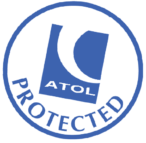Capital: Riga
Time zone: GMT + 2 ( GMT + 3 in summer)
Telephone services: Country Code: 371
Outgoing Code: 810
Emergency telephone numbers: Ambulance – 03, Police – 02, Fire – 01
Tourist information: National Tourism Board of Latvia, Pils laukums 4, Riga LV 1050, Latvia Tel: 722 9945 Fax: 722 9945.
Passport information: Valid passport required by all. Must be valid for 2 months after period of stay. NOTE: Palestinian passports are not recognised. Return Ticket required. Requirements may be subject to short term change. Contact the relevant authority before departure.
Visa information: Required by all except: Holders of British passports. Nationals of the Czech Republic, Estonia, Republic of Ireland, Lithuania, Poland, the Slovak Republic, the USA and the Vatican city for a maximum stay of 90 days, and nationals of Hungary for a maximum stay of 30 days. Nationals of those countries may also travel to Lithuania and Estonia. Other nationals of the EU, Australia, Canada and nationals of Andorra, Argentina, Brazil, Belize, Chile, Cyprus, Iceland, Israel, Liechtenstein, Malta, Mexico, Monaco, New Zealand, Norway, Paraguay, San Marino, Singapore, Slovenia, South Africa, South Korea, Switzerland, Uruguay, Venezuela are entitled to apply for visas on arrival.
Health information: Other Health Risks: Rabies, Tuberculosis, Diphtheria, and Hepatitis.
Food & drink: Water is untreated and not safe to drink.
Currency: 1 Latvian Lat (Ls) = 100 santims
Exchange: the banking system is still being developed but there are bureaux de change in most post offices, hotels and railway stations.
Credit cards and travellers cheques are only accepted on a limited basis. The preferred foreign currencies are US dollars and the German Deutschemark.
ATM availability: Over 10 locations
Cost of living: Generally less expensive than Western Europe
Languages: Latvian. Russian is increasing. English, German and Swedish may also be spoken
Weather: Temperate climate but with considerable temperature fluctuations. The Summer is warm with relatively mild weather in spring and autumn. Winters can be very cold
Electricity: 220 volts AC, 50 Hz. European style 2 pin plugs are used.
Post: Airmail to Western Europe takes 3 – 4 days.
Transport: RAIL: Reasonably developed network connects Riga with the other main towns. ROAD: There are good connections from Riga to all other parts of the country. BUS: A better form of transport than trains in Latvia. CAR HIRE: Available through hotels. Reservations are recommended.
Special information: Latvians can appear rather reserved and formal, but very welcoming to foreign visitors. Tourists should exercise caution as petty crime is a problem. Carry a copy of your passport as ID.

